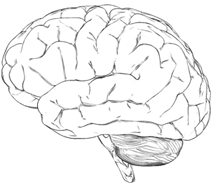Movement Disorders

Movement disorders are neurological conditions that affect the speed, fluency, quality, and ease of movement.Abnormal fluency or speed of movement (called dyskinesia) may involve excessive or involuntary movement (hyperkinesia) or slowed or absent voluntary movement (hypokinesia).
Imagine if you couldn't walk normally or get up from a chair, or if parts of your body moved when you didn't want them to. If you have a movement disorder, you experience these kinds of impaired movement. Nerve diseases cause many movement disorders, such as Parkinson's disease. Other causes include injuries, autoimmune diseases, infections and certain medicines. Many movement disorders are inherited
Movement disorders include the following conditions:
- Ataxia (lack of coordination, often producing jerky movements)
- Dystonia (causes involuntary movement and prolonged muscle contraction)
- Huntington's disease (also called chronic progressive chorea)
- Multiple system atrophies
- Myoclonus (rapid, brief, irregular movement)
- Parkinson's disease
- Restless legs syndrome (RLS)
- Reflex sympathetic dystrophy(RSD)
- periodic limb movement disorder(PLMD)
- Tics (involuntary muscle contractions)
- Tremor (e.g., essential tremor, resting tremor)
Treatment
Treatment for movement disorders depends on its underlying cause. In most cases, the goal of treatment is to relieve symptoms. Treatment may include medication, Botox injection, therapy and surgery.
Medications that may be used include the following:
- Antiepileptics
- Antiseizure medications
- Beta-blockers
- Dopamine agonists
- Tranquilizers
 Alzheimer's Disease
Alzheimer's Disease